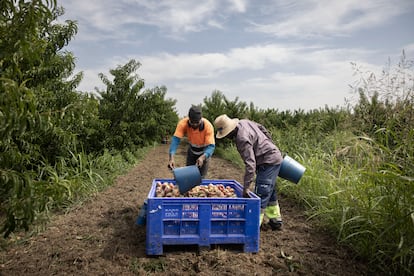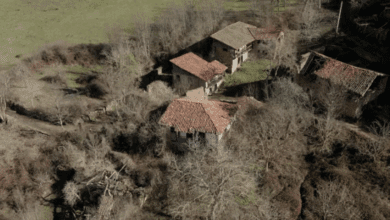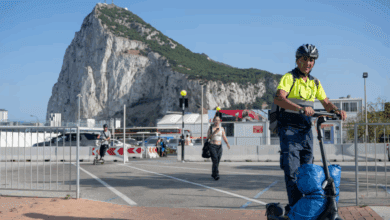
The fruit harvest season continues in Catalonia, but the abnormal heat is forcing farmers to reconsider their usual routines. After a tragic incident near Lleida, where a 61-year-old seasonal worker from Romania died of heatstroke, workplace safety in the agricultural sector has returned to the spotlight.
Although the official heat alert has been lifted, temperatures in the region are still reaching nearly 40 degrees. Under these conditions, many farms are adjusting their schedules: fruit pickers start work before dawn to avoid the most dangerous hours under the scorching sun. Some farmers provide workers with headlamps and extra lighting for equipment, allowing them to begin harvesting as early as four or five in the morning and finish their shift before the extreme heat sets in.
Small farm owners note that such measures have become essential, as the fruit picking season does not allow for long breaks. However, not all operations follow the new guidelines. On the day of the tragedy, the victim was working in the field at 4:00 p.m., when the temperature reached 41 degrees—considered the most dangerous time for physical labor outdoors.
Unions emphasize that such incidents are the result of failing to observe basic safety measures and insufficient oversight of working conditions. Industry representatives note that workers hired through temporary agencies are especially vulnerable, as there is often a lack of clear coordination between the employer and the intermediary. In extreme heat, these gaps can lead to tragic consequences.
According to current regulations, when a red weather alert is issued, employers are required either to suspend work or to adjust schedules to avoid dangerous temperatures. However, in practice, these requirements are not always followed. Unions are demanding more inspections and stricter oversight of seasonal worker recruitment, particularly during major harvest periods.
Many farmers believe that excess bureaucracy hinders their work, but union representatives insist that only strict oversight and transparent hiring procedures can protect people from accidents. On large farms, where seasonal workers put in up to 50 hours a week, the risks are especially high. Here, employers often exploit the vulnerability of migrants, forcing them to work in hazardous conditions to earn a living.
The Catalan authorities and trade unions are discussing the establishment of special coordination groups to improve cooperation among all participants in the agricultural sector. Such a practice has already proven effective in the construction industry. The introduction of additional control measures and the revision of work schedules have become necessary responses to the new climate challenges facing Spain’s agriculture sector.
The situation in Lleida has become a warning sign for the entire region. In the context of climate change and increasingly frequent heatwaves, the agricultural sector is forced to seek a balance between the need to harvest crops and ensuring people’s safety. In the coming years, such measures may become standard across all agricultural regions of the country.











